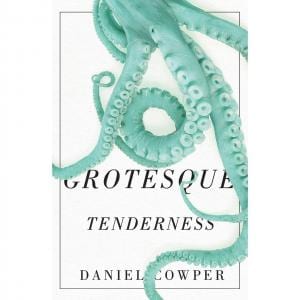[I don’t usually cross-post my Rock and Theology blogging here at Vox Nova, but I thought there might be sufficient interest in this piece to warrant posting it here. The record I describe is one of those obscurities that one almost wishes she could keep to herself, but it’s just too cool not to share it. Enjoy.]
The debates over filesharing, particularly with relation to music, continue to rage. Over at Rock and Theology, the topic was recently brought up in posts here and here, both of which extended the question of “free” music to the sharing of theological reflection. My own view on the sharing of music, both as a “consumer” of music as well as a musician, is quite liberal. (Two great sources on the politics involved in new music technologies are the irreverent and often potty-mouthed site Tiny Mix Tapes and the personal blog of New Testament scholar and Episcopal priest A. K. M. Adam.)
Regardless of where one stands on the issue, most lovers of music would probably agree that music-sharing technologies are simply fantastic for preserving, sharing and discovering out-of-print music. Countless music blogs have sprung up for exactly this purpose. While poking around on blogs featuring rare and out-of-print ’60s psych-folk, I stumbled on a remarkable record by one Fr. Pat Berkery called Prayers for a Noonday Church, released in 1969. Here’s the gist: the hip Fr. Pat recites deadpan theological poetry over a psychedelic rock backing band, exploring themes like the sacraments, the priesthood, and the changing meaning of the sacred. The song titles are simple: “Baptism,” “Confession,” “Chalice,” “Seminary,” etc. Occasionally the band will riff on melodies from traditional Catholic hymns. (The song “Blessings” begins with an organ playing “Praise God From Whom All Blessings Flow.”) For a quick sample, you can download the first track, “Baptism,” here.
Two things strike me about this record. The first is how uniquely it captures something of the popular theological spirit of the times. When the topic of early post-Vatican II musical experimentation is brought up, the classic example that springs to mind is that army of liturgical folksters the St. Louis Jesuits, a group whose output is met with both admiration and groans depending on who you ask. (I happen to enjoy a lot of their work and am working on an “Appalachian” tribute to some of their more obscure tunes. See a recent profile of the group in America Magazine here.) As great as (I think) the Jesuits were, they wrote music for liturgy and for liturgy alone. Fr. Pat’s project here is something entirely different: despite the title, Fr. Pat’s music is not devotional nor is it prayerful but a sort of vehicle for spoken-word theology, a tripped-out inculturation of the Catholic Church’s changing theology into the idiom of ’60s counterculture.
Berkery’s lyrics don’t simply attempt to “sell” a rejuvenated Catholicism to young people using sound-alike musical forms but acknowledges the collapse of an outdated theology and wrestles with the experience of doubt, simultaneously rejecting and affirming various aspects of Catholicism. On the one hand, he questions the Catholic doctrine of transubstantiation in “Chalice,” singing “Chalice / Cold, cold metal / Is God really here?” and on the other defends the practice of priestly celibacy in a song titled… well, “Celibacy.”
Fr. Pat’s lyrics even subject Catholic sacraments to occasional ridicule, as in his take on confession:
Bless me, Father, for I have sinned
Stop pushing; I am the next to get in[…]
People are hated and repelled
Houses littered and awful-filled
But I missed Mass and sat down to eat,
forgetting to dedicate and bless the meatHidden face behind the screen,
hidden Christ shielded in gold,
Silent lines filled with hate,
Is this not a dirge? / Must I really participate?
But the song does not merely ridicule the sacrament from a smug sacramentology as if to say “we’ve outgrown that.” Out of nowhere, the song ends with a line signaling an awareness of the Church’s rethinking of sin in social terms in a time of struggles for racial justice:
Long long lines, don’t scare me, please
Reveal my God, but don’t hide him from me in darkness
I’m sorry for the real real sin
I judged my brother, I hated his skin
The second thing that strikes me about the record is how difficult it is to categorize. “Christian rock” this ain’t; it’s too honest, even blasphemous by some calculations, for that. Nor is it “secular” rock which merely refers to the “sacred” as so much rock music does. Nor can it be located in that “middle” ground of an artist who “happens to be Christian.” One blogger likens Berkery’s music to sonic sermons, but I think there is more going on here than that. Berkery himself is ambivalent about the practice of preaching, as he indicates in the song “Preaching.” Rather than simply presenting his audience with psychedelic homilies, Fr. Pat Berkery seems to be, like Cesare Bonizzi of Fratello Metallo but perhaps ahead of his time, doing a type of “rock theology,” theologizing through rock. Or is he acting out in rock-form an understanding of “ministry” as a ministry of presence, making a preferential option for the excluded, the alienated, the young, without trying to “sell” them anything? As he says in “Preaching”:
Priest, don’t preach to me
but rather live with me
then together we can look to discover
the Word in flesh.
Whether or not one thinks the material is any good (is Berkery simply slinging “third-rate Jim Morrison-isms“?) is beside the point. Prayers for a Noonday Church is theologically (and rockishly) significant, among other reasons, for the way that it creatively confuses the way we map the “secular” and the “sacred.”
Read more descriptions of this out-of-print record, and download a full copy, at Dr. Schluss’ Garage Of Psychedelic Obscurities, Heavenly Grooves (a great ’60s “Jesus music” site), or Mutant Sounds.
[Cross-posted at Rock and Theology and Catholic Anarchy.]












